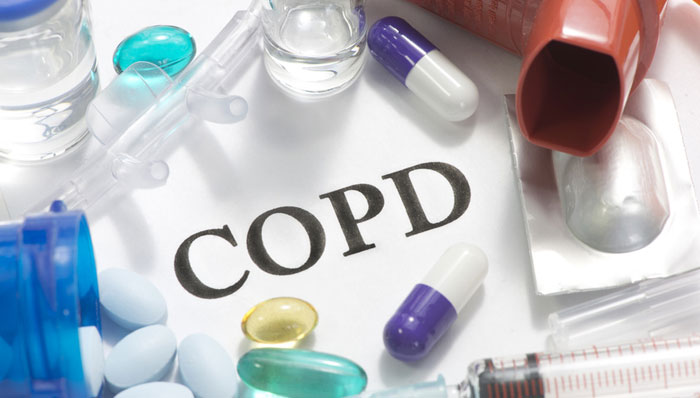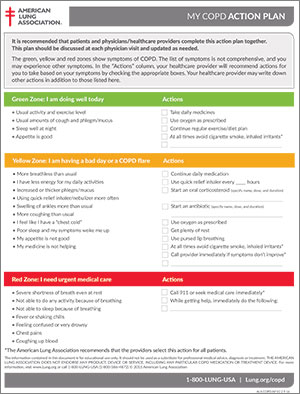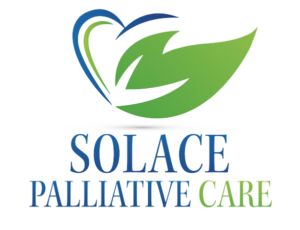
Chronic obstructive pulmonary disease (COPD) is a lung condition that gets steadily worse over time. It frequently involves “flares,” or “exacerbations,” periods when breathing suddenly becomes more difficult. It can be very frightening and often results in a dash to the Emergency Room.

It’s important to know the early signs of a flare and to have an action plan. If you know the signs and what to do, chances are good for managing the condition at home. Skip the stress and cost of trips to the Emergency Room!
Develop a personalized action plan with your relative’s health care provider. The provider may even have classes or nurse educators to help. Ask what you should do if your family member suddenly shows symptoms such as these:
- Feeling more breathless than usual
- Extreme fatigue
- More coughing, with thicker phlegm or mucus
- Needing to use a quick-relief “rescue” inhaler or nebulizer more often
- Weight gain of three pounds or more in a day’s time. This may be due to fluid buildup. Check for increased swelling around the ankles
- Inability to sleep well because of breathing or coughing difficulties
- Lack of appetite
Plan with the doctor what steps to take to address these symptoms. Among other things, the doctor may suggest
- special medications
- special breathing exercises
- increased oxygen
Have these on hand and ready for use at the first sign of a flare. Call the doctor immediately if these treatments don’t help and the condition seems to be getting worse.

